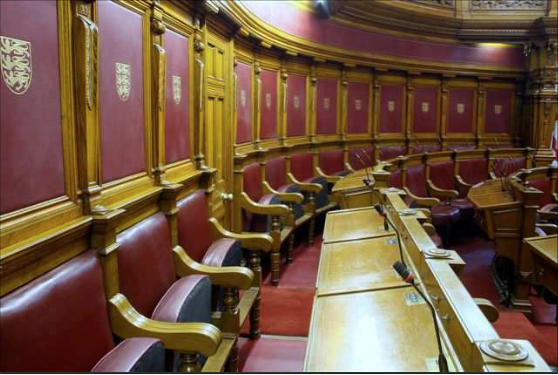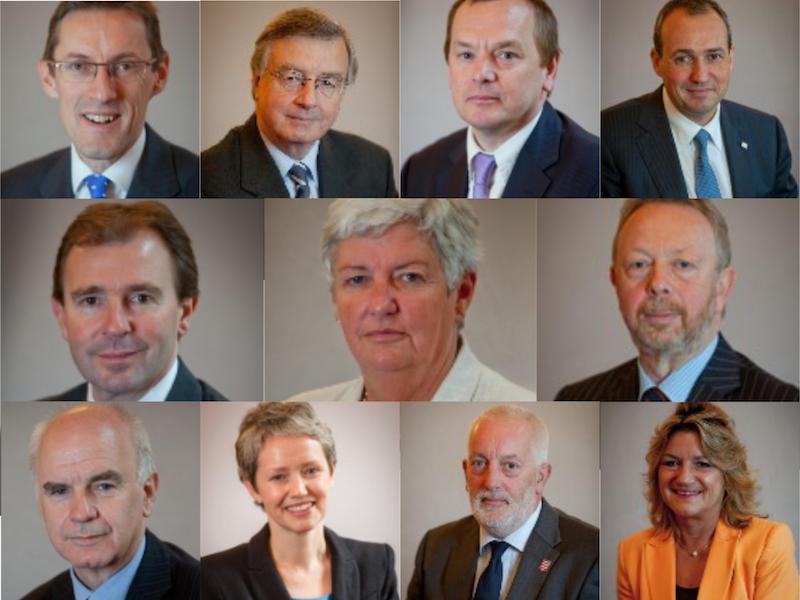

More States backbenchers are using a traditional parliamentary tactic to hold Ministers ‘to account’.
Oral questions without notice - that is, parliamentary questions from backbenchers to Ministers without any advance warning - are on the rise.
The recently published States Assembly annual report for 2016 showed that politicians asked a total of 257 oral questions with notice in 2016 - 46 more than the year before.
Tomorrow States Members will dive back into States Chamber debates for the first time after the Christmas break, and with the hospital planning decision still at the forefront of Members' minds, the tactic of 'springing' questions on their Ministerial colleagues is likely to come out in full force.
Before that, Express heard from politicians about why they're turning to the traditional parliamentary tool more and more...
Reform Jersey Chairman, Deputy Sam Mézec claims 35% of the oral questions were asked by his political party, stating: “Question time is a fundamental part of parliamentary democracy and lots of issues would end up brushed under the carpet if we don't have the opportunity to grill Ministers in a public forum and force them to account for their actions."
He continued: “The States Assembly does not exist to be a platform for Ministers to boast about their achievements, but is for us to hold them to account.”

Pictured: Oral questions are used within the States Assembly to hold Ministers (above) to account.
Constable Chris Taylor said: “If I have a question I normally drop a Minister an email or chat to them over a coffee and this is how around 80% of my questions are answered. But then there’s the motive to use oral questions to just simply get on record the Minister to re-affirm a commitment or make a commitment in the public domain and on public record... This stops them saying one thing and doing something else."
Deputy Tracey Vallois also said most of her questions were resolved by going directly to the Ministers outside the Assembly, but said oral questions are good for the "odd occasions whereby the answer is time critical or the information provided needs to be teased out in a more public forum to heighten awareness to other States members and the public."
She added: “There may be times when something has been highlighted by a member of the public or the press that needs further prodding to establish the Ministers or departments role in that area or even to determine whether the Minister really has any inclination to do anything further with it, or even what they are doing with it.
“There is also the issue of Ministerial decisions, if a Minister makes a decision by order or a change to policy that does not require States Assembly agreement then oral questions can be used to determine the reasons behind that decision, and then assist a member in deciding whether to bring an annulment forward or a proposition to change the parameters of that decision.”
The questions are asked during a two-hour time period at the start of every scheduled States sitting. The largest number answered in one sitting was 19 on the 2 February. But if the time runs out, the questions can’t be asked – this happened on three occasions in 2016, leaving seven questions unanswered.

Pictured: Constable Len Norman raised the issue of increased oral questions in the States Assembly Annual Report 2016.
The increasing amount of oral questions was a concern raised by the Chairman of the Privileges and Procedures Committee, Constable Len Norman, within the report. In his introduction, the Constable said: “The Assembly usually gets through all of the oral questions tabled during the 2 hours provided for questions with notice; but if numbers continue to increase, there may be more occasions where questions go unanswered."
Although it is currently very rare for questions to go answered, Deputy Mézec described it as “incredibly frustrating when it does happen and is often just down to luck who has to put theirs off until the next session... On occasion when there are lots of questions on the order paper, the Bailiff will restrict how much time is allowed to ask supplementary questions. Annoyingly, this ends up playing into Ministers hands and infringes on back benchers and opposition members’ ability to hold the government to account.”
Deputy Vallois mirrored his concern, saying: “…should oral questions continue to increase, ultimately it would be one of less accountability of Ministers to the States Assembly and therefore the public as a whole.”
Both the Deputy and Constable of St John felt there could be fewer repetitive questions to ease the pressure.
So is extending question time the answer? No - according to Constable Taylor who says each session can be assessed: “One member can stand up and say ‘I propose question time to be extended’ as long as it is seconded the Bailiff will then put to an assembly vote... That’s a better way around than making the period two and a half hours long as it’s just wasting our time."
But the Reform Jersey Chairman doesn’t want to miss out on holding the Council of Ministers to account in future, warning: “If question time ends up too limited, then I would be prepared to propose that it be extended to allow time for all questions that need to be asked.”
Comments
Comments on this story express the views of the commentator only, not Bailiwick Publishing. We are unable to guarantee the accuracy of any of those comments.